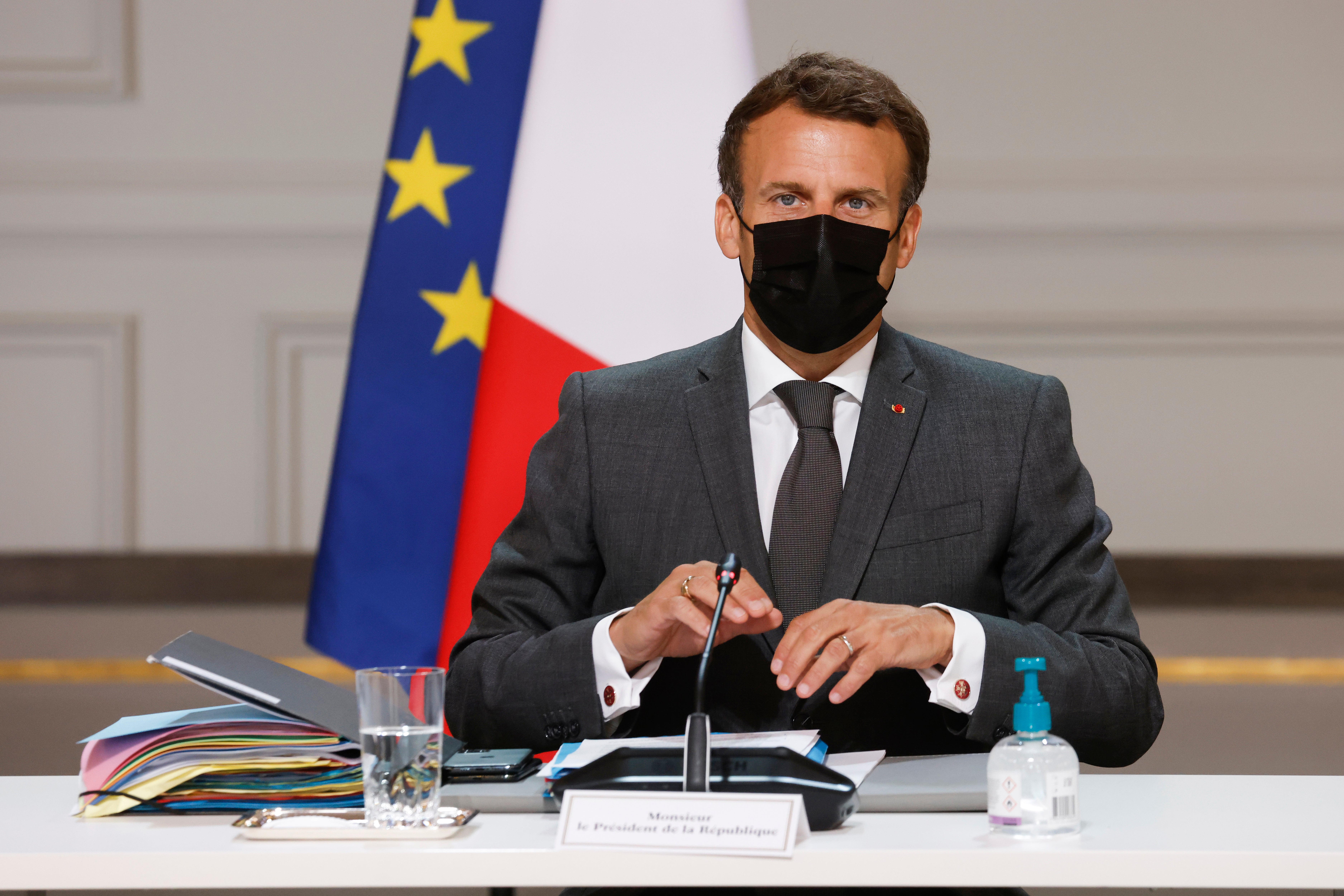Slap to Macron puts focus on ultra-right groups
Bubbling beneath France’s political landscape is an assortment of ultra-right groups, an invisible subculture that shot to the nation’s attention when a young man slapped President Emmanuel Macron and blurted out a centuries-old royalist cry

Your support helps us to tell the story
From reproductive rights to climate change to Big Tech, The Independent is on the ground when the story is developing. Whether it's investigating the financials of Elon Musk's pro-Trump PAC or producing our latest documentary, 'The A Word', which shines a light on the American women fighting for reproductive rights, we know how important it is to parse out the facts from the messaging.
At such a critical moment in US history, we need reporters on the ground. Your donation allows us to keep sending journalists to speak to both sides of the story.
The Independent is trusted by Americans across the entire political spectrum. And unlike many other quality news outlets, we choose not to lock Americans out of our reporting and analysis with paywalls. We believe quality journalism should be available to everyone, paid for by those who can afford it.
Your support makes all the difference.Bubbling beneath France’s political landscape is an assortment of ultra-right groups, a subculture that shot to the nation’s attention when a young man slapped President Emmanuel Macron and blurted out a centuries-old royalist cry.
Ignored by most people, ultra-rightist groups are considered increasingly dangerous despite their small following and are on the radar of authorities. Numerous arrests have been made and several groups banned, including one this year. Challenges to the French identity are often at the center of their ideologies.
During Wednesday's Cabinet meeting, Macron discussed the incident a day earlier in a small town in the southeast Drome region. “No violence can be considered banal in the country,” government spokesman Gabriel Attal said later. But Macron stressed it was ”an isolated act by a violent individual" that wouldn't stop his direct contact with the population.
The town of Tain-l’Hermitage was the president's most recent stop on a tour designed to “feel the pulse of the country” that's been laid low by the coronavirus and trying to get back on its feet.
Two people, the man who assaulted the president and a friend, were quickly arrested and still under questioning Wednesday. Neither the man identified in French media as the slapper, Damien Tarel, 28, nor his friend, identified only as Arthur C., had police records, the local prosecutor said.
Tarel’s motives remained unclear, but it was his cry “Montjoie! Saint Denis!” as he slapped Macron’s cheek with his right hand, that pointed to the aggressor’s potential interest in the tiny royalist fringe movement. Social media posts showed he followed royalist TV channels and a smattering of extreme-right figures.
In 2018, the royalist call to arms dating to Medieval times was cried out by someone who threw a cream pie at the far-left lawmaker, Eric Coquerel. The extreme-right pro-monarchist group Action Francaise took responsibility. Action Francaise, born in the early 20th century, did not claim a role in Tuesday’s slapping incident, but hours later tweeted almost playfully, “Vive la tarte a Tain," a play on words combining the slang for “slap” (tarte), the French apple desert, tarte tatin, and Tain-l’Hermitage, where the incident occurred.
Far-right leader Marine Le Pen was among political chiefs to quickly condemn the assault. Le Pen, a candidate in 2022 presidential elections, has spent years working to rid her National Rally party of extremist elements who gravitated around her father’s National Front party, which she renamed.
Obscure to most of France ultra-right movements are a priority on the radar of investigators.
A probe into an alleged plot uncovered in 2018 against Macron by a mini-group whose members were scattered around France is still in progress. The group, known as Les Barjols, was ordered disbanded.
Mediapart, an online investigative outlet, reported last month that investigators are on alert for the eventual return of ultra-right terrorists. It cited a confidential report from the prosecutor’s office detailing the professionalism and ability to obtain weapons by some groups. It said 17 deaths can be attributed to the ultra-right between 2016-2019, and quoted investigators as counting about 1,000 militants and 2,000 followers of the ultra-right.
In March, France banned Generation Identity, citing its ideology “inciting hate, violence or discrimination of individuals ... based on origins, race or religion.” The organization was known for spectacular actions to get out its anti-migrant message in what it claimed was a mission to preserve French and European civilization.
The profile emerging on social media of the man arrested for Tuesday's slap showed an interest in medieval combat and martial arts, confirmed by a friend in an interview on BFMTV. The friend, identified only as Loic, said he was “stunned” by the slap. In October 2018, Tarel put out a call on a social media platform for funds for an association of Medieval martial arts in his hometown, Saint-Vallier, with a population of under 4,000.
Four hours before Tuesday's assault, a TV news show, Le Quotidien, broadcast a brief clip of Tarel and two friends waiting to see Macron. Neither Tarel nor the man detained with him spoke, but the third person said: “There are things that should be said, but unfortunately cannot be said.”
Among the issues, he said, was “the decline of France.”
___
Sylvie Corbet in Paris contributed.